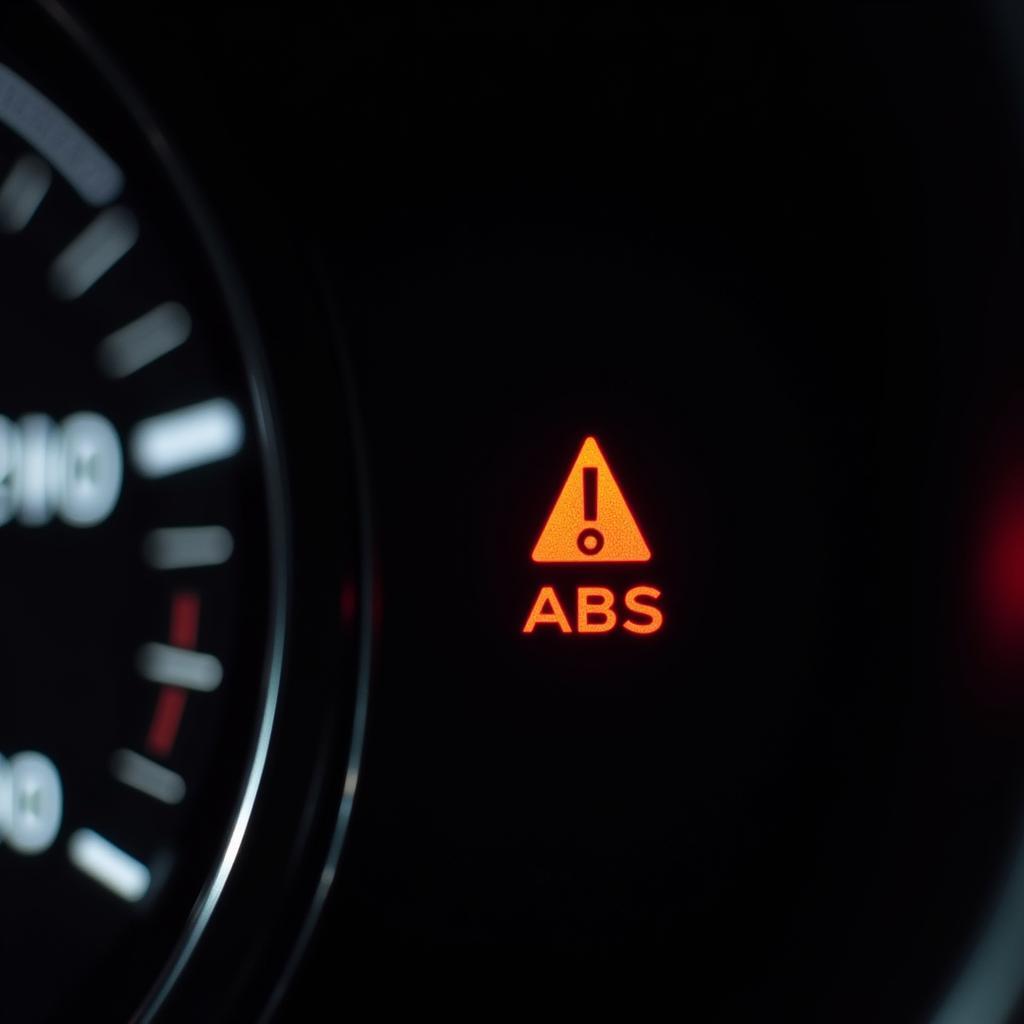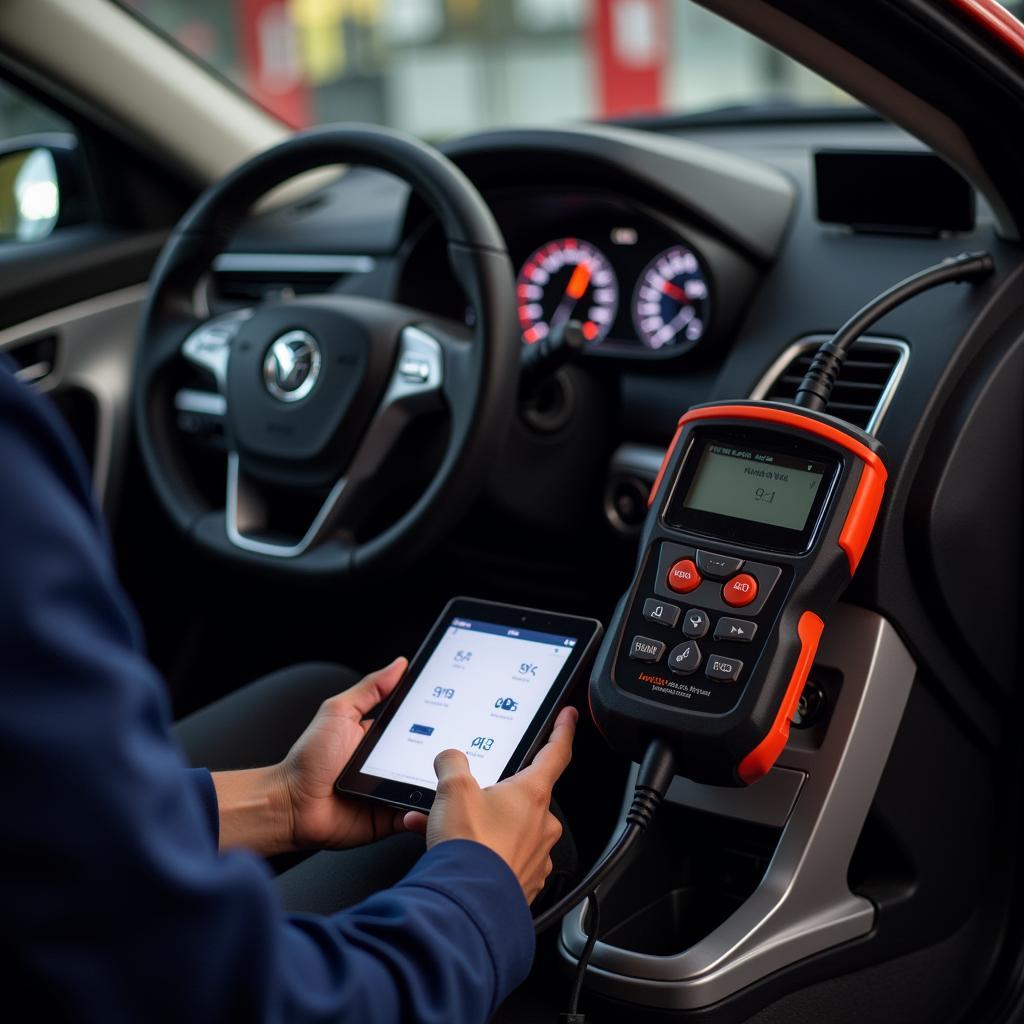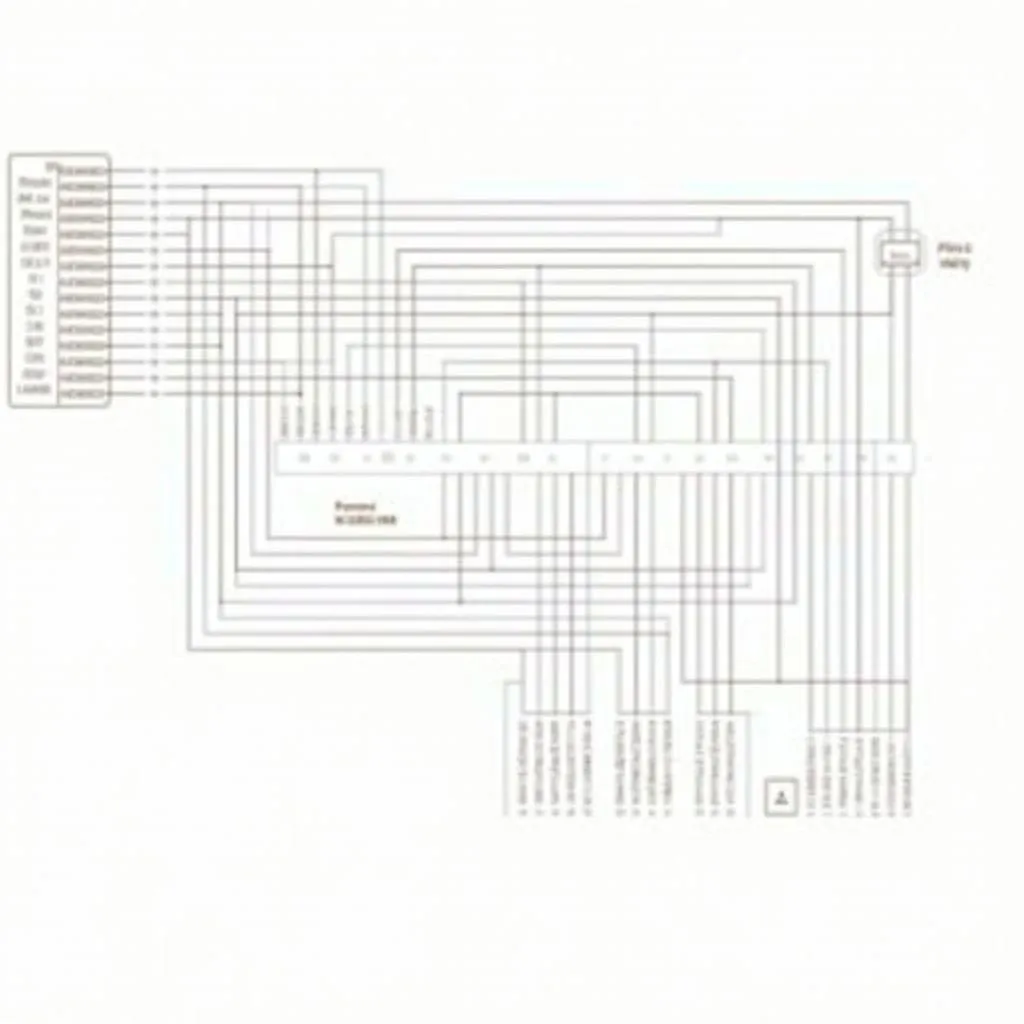Seeing your antilock brake system (ABS) warning light illuminate on your dashboard can be unnerving. It often signals a problem that could compromise your ability to stop safely. If this warning appears after you’ve recently dealt with brake fluid, there’s a good chance the two are connected. This article will explore the common reasons why you might get an antilock warning after brake fluid service and guide you toward potential solutions.
How Brake Fluid and Your ABS System are Connected
While it might not seem immediately obvious, your brake fluid plays a crucial role in your ABS system’s functionality. Here’s how:
- Hydraulic Pressure: Your car’s braking system relies on hydraulic pressure to function. When you press the brake pedal, you’re essentially pushing brake fluid through lines to activate the calipers, which clamp the brake pads against the rotors, slowing your vehicle.
- ABS Modulation: The antilock brake system is designed to prevent your wheels from locking up during hard braking. It does this by using sensors to monitor wheel speed. If a wheel starts to lock, the ABS system modulates the hydraulic pressure going to that specific wheel, allowing it to regain traction.
- The Importance of Fluid: Clean, air-free brake fluid is essential for transmitting hydraulic pressure effectively and allowing the ABS system to respond precisely.
Common Causes of ABS Warnings After Brake Fluid Service
-
Air in the Brake Lines: One of the most frequent culprits is air trapped in the brake lines after a fluid change or repair. Air compresses under pressure, making the brake pedal feel spongy and preventing the proper transmission of hydraulic force to the ABS system.
-
Low Brake Fluid Level: If the brake fluid level is too low, it can introduce air into the system. Additionally, the ABS pump might not be able to generate enough pressure to function correctly. Always check your brake fluid reservoir after any work involving the brake system.
-
Dirty or Contaminated Brake Fluid: Brake fluid is hygroscopic, meaning it absorbs moisture from the air over time. This absorbed moisture can lower the fluid’s boiling point and lead to corrosion within the braking system, potentially affecting ABS components.
-
Faulty ABS Wheel Speed Sensor: While less directly related to brake fluid, it’s possible that a wheel speed sensor was accidentally damaged during brake work. A malfunctioning sensor can disrupt the ABS system’s ability to detect wheel lockup.
-
Damaged ABS Module: In rarer cases, the ABS module itself might be faulty. This is a more serious issue that usually requires professional diagnosis and repair.
 ABS Warning Light on Dashboard
ABS Warning Light on Dashboard
Troubleshooting and Solutions
If you encounter an ABS warning light after brake fluid service, consider these steps:
-
Check Your Brake Fluid Level: This is the easiest and most important step. If the fluid is low, carefully top it off to the appropriate level with the correct type of brake fluid for your vehicle (consult your owner’s manual).
-
Inspect for Leaks: Examine the area around your brake master cylinder, calipers, and brake lines for any signs of fluid leaks. If you spot a leak, address it immediately.
-
Bleed the Brakes: If you suspect air in the lines, bleeding the brakes is crucial. This process involves forcing brake fluid through the system to purge any trapped air bubbles. It’s often best to have a professional mechanic perform this procedure.
-
Scan for Trouble Codes: Many vehicles allow you to scan for diagnostic trouble codes (DTCs) using a basic OBD-II scanner. This can provide valuable insights into the potential cause of the ABS warning.
-
Consult a Professional: If you’re unable to resolve the issue or suspect a more complex problem with the ABS module or sensors, seek the expertise of a qualified mechanic.
 Mechanic Diagnosing ABS Issue
Mechanic Diagnosing ABS Issue
Preventing Future Issues
-
Regular Brake Fluid Flushes: Most car manufacturers recommend flushing your brake fluid every 2 years or 24,000 miles. This ensures fresh, moisture-free fluid and helps prevent corrosion.
-
Careful Brake Work: If you’re performing brake work yourself, be meticulous to avoid introducing air into the system. Use high-quality brake fluid and bleed the brakes properly after any repairs.
Conclusion
An antilock warning light appearing after brake fluid service is a strong indicator that there might be an issue within your braking system. While the causes can range from simple air in the lines to more complex ABS module problems, addressing the problem promptly is vital for your safety on the road. Regular maintenance and a proactive approach to brake fluid flushes can go a long way in preventing future ABS-related headaches.

